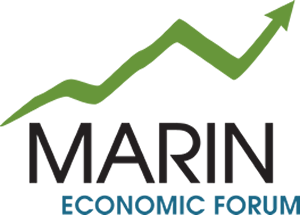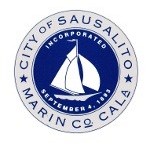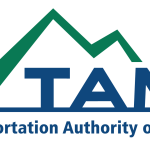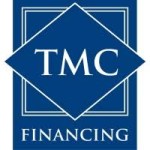Marin Economic Forum economist sees strong economy through 2020
Marin Independent Journal
By Richard Halstead
No recession before 2020 at the earliest and higher Marin home prices in 2019 were among the predictions made at an event sponsored by the Marin Economic Forum this week.
“Right now it seems unlikely that we would have a recession before the end of 2020,” said professor Robert Eyler, head of the economics department at Sonoma State University and the forum’s chief economist.
“I think next year will be a little trickier,” he said. “In 2021, I’m not sure yet; the clouds have yet to part for me.”
An estimated 300 people turned out for the breakfast meeting Tuesday at Embassy Suites Hotel in San Rafael. Eyler spoke to the Independent Journal about his findings on Wednesday.
The meeting also included a presentation by Craig Nelson, chairman of the San Rafael-based Nelson Family of Companies, which fills staffing needs. Nelson said a survey of his clients found that 73 percent reported losing a job candidate or having to pay a job candidate more because of the cost and diminishing availability of housing in the area.
Adding to local employers’ difficulties hiring and retaining workers, Marin’s unemployment rate of 2.2 percent is the second-lowest in the state.
Mike Blakeley, who became the forum’s chief executive in November, its fifth chief executive since June 2011, said attendees were “appreciative of the fact that we were raising awareness about how complicated the workforce development issue is here in Marin County. Employers are challenged to attract and retain workers.”
Eyler said nationally incomes are still rising and so are housing prices, even though their rate of growth has slowed. He also noted that the Federal Reserve seems poised to stick to just two interest rate hikes this year.
“All the things that make an economy go on the real side of the market look good,” he said. “On the financial side, the stock market is giving some conflicting indicators; we will just have to see how much uncertainty remains in our economy in the next six months or so.”
Eyler said if the trade war with China escalates, however, the Bay Area economy will be the first in the U.S. to feel it.
He said if there is a quick contraction in the number of employees hired by major employers in the Bay Area — Salesforce, Google, Apple, and Facebook — it will likely mean this period of market expansion is about to end.
Eyler said if that occurs, “Marin County is going to feel a little bit of that ripple.”
He said another thing for people in Marin to keep an eye on is whether the devastating wildfires of the past several years reduces demand for homes in the North Bay. He said so far Marin has benefited as displaced homeowners have rented or purchased Marin properties, but he said as insurance funding runs out some displaced homeowners may choose to leave the area.
Nevertheless, Eyler said Zillow Research is projecting that the median price for a home in Marin will increase by 6.6 percent in 2019.
During his talk on Tuesday, Eyler presented a chart that showed rental prices in Sonoma County have risen since 2011 to levels closer to those in other wealthier Bay Area counties. The chart, based on Zillow Research data, showed that in October 2018 Marin County had the highest median rent in California for any county that Zillow tracks.
In his presentation, Eyler also included a California Department of Transportation economic forecast that projected more than a 28 percent drop in Marin finance jobs by 2027.
Eyler said on the bright side, the same forecast projects overall job growth of just under 6 percent in Marin during that same period. The projected drop in Marin finance jobs anticipates customer service jobs in banks and credit unions being automated out of existence or relocated out of Marin.
Eyler said, however, that any forecast this long range should be regarded with a healthy dose of skepticism.
“We don’t even know what jobs are going to exist in 10 years,” he said.
Eyler also presented recommendations from a study commissioned by the College of Marin and the Workforce Alliance of the North Bay. The aim of the study was to better prepare workers for Marin hospitality and applied business technology jobs coming online in the near future.
“In our research, we learned there is not an amazing amount of communication between employers and workforce development,” Eyler said.
He said the forum is recommending that three hotels, three major restaurants, “and maybe Bay Area Discovery Museum or Point Reyes National Seashore” tell College of Marin and the Workforce Alliance what job openings they expect to have over the next year so prospective employees can be trained appropriately.
“Instead of seeing workforce development as a social service, we have to think about employers being engaged directly,” Eyler said. “Workforce development is economic development.”
Be the first to receive updates and news from MEF by subscribing or liking us on our social media pages: Facebook, Twitter, and LinkedIn!
Tags: news














